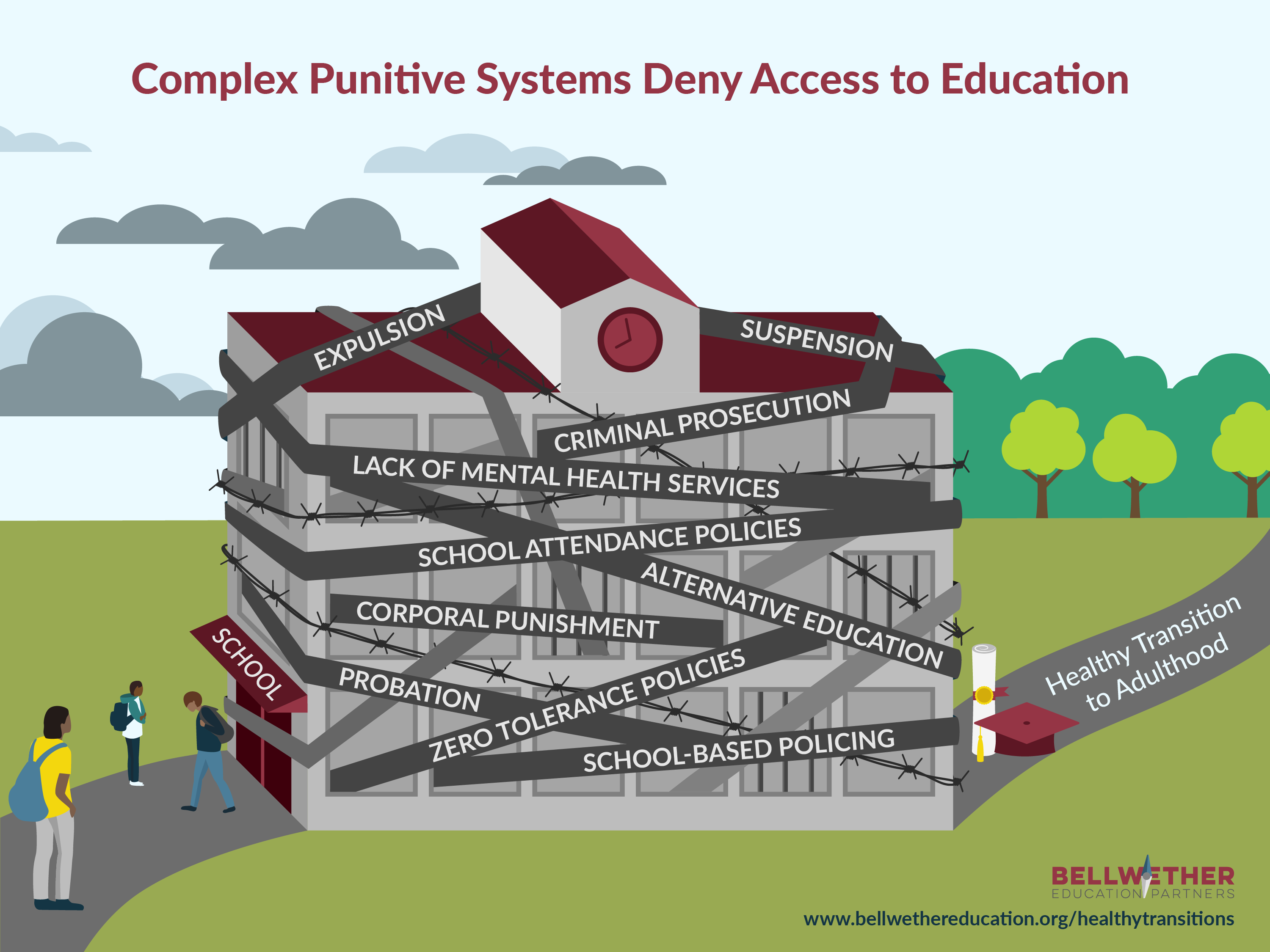For young people, getting into trouble at school, even for minor misbehaviors and transgressions that are common in adolescence, can lead to a student’s first contact with the criminal justice system. However, our current punitive approaches to youth misbehavior, both in and out of schools, risk sentencing children to a “life without education.” This happens when students are diverted from their system of learning and development to a pathway characterized by control and punishment, instead of one that offers care and support.

Evidence shows punitive environments are harmful to student learning and socio-emotional development—and youth from low-income families, students with disabilities, and children of color are most at risk. In addition, students who encounter the justice system often face significant barriers during the transition back to school, and tend to experience worse outcomes later in life compared to youth who avoid serving time.
Calls for schools to end long-standing approaches—such as police officers on campuses, expulsions, and zero-tolerance policies—are a part of a broader call to divest from punitive systems. However, while divesting is an important part of interrupting punitive systems, so is the effort to make investments.
There are many efforts schools can make to support vulnerable youth and decrease the size of punitive systems, and some states, local governments, and advocates are leading the way by investing in evidence-based reforms. However, there are still many schools and education leaders who lack a clear understanding of what is happening in the field and what investments work.
Investing in Healthy Transitions to Adulthood: The Role of Schools, a new release from Bellwether, identifies key opportunities for schools to take on broader and more influential roles in the evolving conversation about policing, mass incarceration, and the movement for racial justice. Key recommendations include:
- Schools should stop investing time and resources into punitive policies and approaches that do not work. This can include school police, but also includes zero-tolerance policies, suspensions, expulsions, corporal punishment, and other punitive approaches.
- Schools should instead invest time and resources in community-based, restorative alternatives (e.g., mentors, counselors, restorative justice programs) that align with their shared mission: supporting healthy transitions to adulthood.
The full resource offers:
- A grounding in evidence,
- Common questions and guiding principles,
- Stories of real-world efforts to surface lessons for leaders,
- Planning tools to begin to act, and
- An explanation of common terms for further exploration.
Download the full resource or read it in the viewer below.